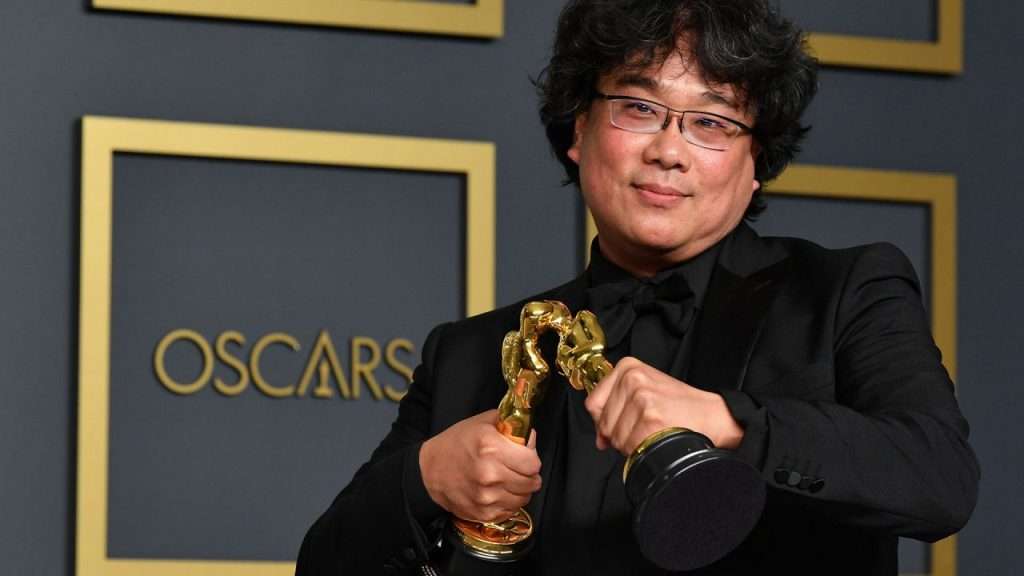Korean cinema has gained international recognition and popularity in recent years, with its unique storytelling techniques and distinct aesthetic style. Known for its ability to seamlessly blend genres, Korean films often explore complex themes such as social issues, family dynamics, and political unrest. From gripping thrillers to heartwrenching dramas, Korean cinema offers a diverse range of narratives that captivate audiences from around the world.
Moreover, the country’s filmmakers have a knack for creating strong and memorable characters, allowing viewers to deeply connect and empathize with their stories. With its commitment to high-quality productions and a growing pool of talented directors, actors, and cinematographers, Korean cinema continues to push boundaries and leave a lasting impact on the global film industry.
The recent rise of the powerful Korean wave in the West is remarkable for several reasons, including the relatively recent emergence of Korea’s film industry on the global stage. Both countries have endured a long history of hardships, wars, repression, and colonial exploitation, resulting in limited opportunities for a thriving film industry in Korea. Creating a list of the greatest Korean directors requires avoiding the temptation to focus solely on the past 25 years while acknowledging that Korea was not an ideal environment for talented auteurs to flourish for significant portions of the 20th century.
Yim Soon-rye
Yim Soon-rye is a highly acclaimed South Korean film director known for her thought-provoking and emotionally resonant storytelling. With a career spanning over three decades, Yim has established herself as a prominent figure in the Korean film industry. Her films often explore themes of family, identity, and societal issues, delving into the complexities of human relationships and the challenges faced by individuals in a rapidly changing world.
Yim’s unique directorial style combines striking visuals with a keen eye for detail and authentic performances, resulting in captivating cinematic experiences. Her works have garnered critical acclaim both domestically and internationally, earning her numerous accolades and making her a respected figure in the world of cinema. Yim Soon-rye’s contribution to Korean cinema is immeasurable, as she continues to inspire and captivate audiences with her thought-provoking narratives and artistic vision.
Park Chan-wook

Park Chan-wook is a highly acclaimed South Korean filmmaker known for his visually stunning and emotionally gripping films. Born in 1963, he began his career in the 1990s and quickly gained recognition for his unique storytelling style and bold cinematic choices. Park’s films often explore themes of revenge, redemption, and the human capacity for violence.
He gained international fame with his 2003 film “Oldboy,” which won the Grand Prix at the Cannes Film Festival and solidified his reputation as a master of storytelling. Park’s films are characterized by their meticulous attention to detail, striking visuals, and complex characters. With his innovative approach to filmmaking, Park Chan-wook has become an influential figure in world cinema, leaving a lasting impact on both Korean and international audiences.
Yu Hyun-Mok

Yu Hyun-mok was a renowned South Korean film director known for his significant contributions to the Korean New Wave movement. Born in 1925 in what is now North Korea, Yu began his career in the film industry in the 1950s and quickly gained recognition for his innovative storytelling and technical prowess. He explored various themes in his films, including the struggles of the working class, the effects of war, and the complexities of human relationships.
Yu’s films often depicted the harsh realities of Korean society, shedding light on the social and political issues of the time. His masterpiece, “Obaltan” (also known as “Aimless Bullet”), is considered a groundbreaking film that portrays the post-war disillusionment and despair faced by ordinary citizens. Yu’s impactful filmmaking style and commitment to social realism have left an indelible mark on Korean cinema, making him one of the most influential directors in the country’s history.
Hong Sang-soo

Hong Sang-soo is a highly acclaimed South Korean filmmaker known for his distinctive and introspective style of storytelling. With a career spanning over two decades, he has garnered international recognition and critical acclaim for his works. Hong’s films often explore themes of love, relationships, and the complexities of human interactions.
His narratives are characterized by their minimalist approach, long takes, and recurring motifs. Through his films, Hong presents a nuanced and introspective examination of the human condition, often blurring the lines between reality and fiction. His unique storytelling style and keen observation of everyday life have made him a prominent figure in contemporary cinema, earning him numerous awards and a dedicated following of cinephiles around the world.
Kim Ki-young

Kim Ki-young was a highly influential South Korean film director known for his unique and unconventional storytelling style. He rose to prominence during the 1960s and 1970s, challenging traditional Korean cinema with his dark and psychological narratives. Kim Ki-young’s films often explored themes of human desires, obsession, and the destructive power of love.
He was a master of creating tension and suspense, and his use of innovative camera techniques and striking visuals added depth to his storytelling. Some of his most notable works include “The Housemaid” and “Woman of Fire.” Kim Ki-young’s films continue to be celebrated for their artistic vision and thought-provoking narratives, solidifying his legacy as one of the most important figures in Korean cinema history.
A vision curated by a filmmaker, not an algorithm
In this video I explain our vision
Yoon Ga-Eun

Yoon Ga-eun is a talented South Korean filmmaker known for her unique storytelling and insightful exploration of societal issues. Born in 1983, Ga-eun graduated from the Korean Academy of Film Arts. She gained international recognition with her debut feature film, “The World of Us,” which won numerous awards and was praised for its sensitive portrayal of childhood friendships and the impact of social hierarchies on young minds.
Ga-eun’s works often highlight the struggles faced by marginalized individuals, particularly children, in Korean society. With her exceptional cinematic style and thought-provoking narratives, Yoon Ga-eun continues to captivate audiences and contribute to the growth of Korean cinema.
Im Kwon-Taek

Im Kwon-Taek is a highly renowned South Korean film director, often considered a pioneer of the country’s cinematic industry. With a career spanning over six decades, he has directed numerous critically acclaimed films that have garnered international recognition. Im Kwon-Taek is known for his deep exploration of Korean culture and history, often incorporating elements of traditional Korean art forms such as pansori (a form of musical storytelling) into his films.
His works are characterized by their poetic storytelling, masterful cinematography, and rich character development. Im Kwon-taek’s contributions to Korean cinema have not only elevated its global reputation but have also played a significant role in preserving and promoting Korean cultural heritage through the medium of film.
Lee Chang-dong

Lee Chang-dong is a highly acclaimed South Korean filmmaker known for his profound storytelling and thought-provoking themes. Born in 1954, he started his career as a novelist before entering the film industry. Lee’s films often delve into the complexities of human emotions, societal issues, and the struggles of ordinary people. His works are characterized by their meticulous attention to detail, rich character development, and captivating cinematography.
Lee’s filmography includes masterpieces like “Peppermint Candy,” “Secret Sunshine,” and “Burning,” which have garnered critical acclaim and numerous awards worldwide. Through his unique cinematic style, Lee Chang-dong has established himself as one of the most influential and visionary directors in contemporary cinema.
Bong Joon-ho

Bong Joon-ho is a South Korean film director and screenwriter known for his unique storytelling and genre-bending films. Born in 1969, Bong has garnered international acclaim for his ability to seamlessly blend different genres, often infusing elements of suspense, drama, and dark humor into his works.
Some of his notable films include “Memories of Murder,” a gripping crime thriller based on a real-life serial murder case, and “Parasite,” a satirical black comedy that explores the class divide in contemporary society. Bong’s films are often praised for their compelling narratives, social commentary, and stunning cinematography. His distinctive style and ability to tackle complex themes have made him a prominent figure in the global film industry, earning him numerous accolades and a dedicated fan base.
A vision curated by a filmmaker, not an algorithm
In this video I explain our vision



